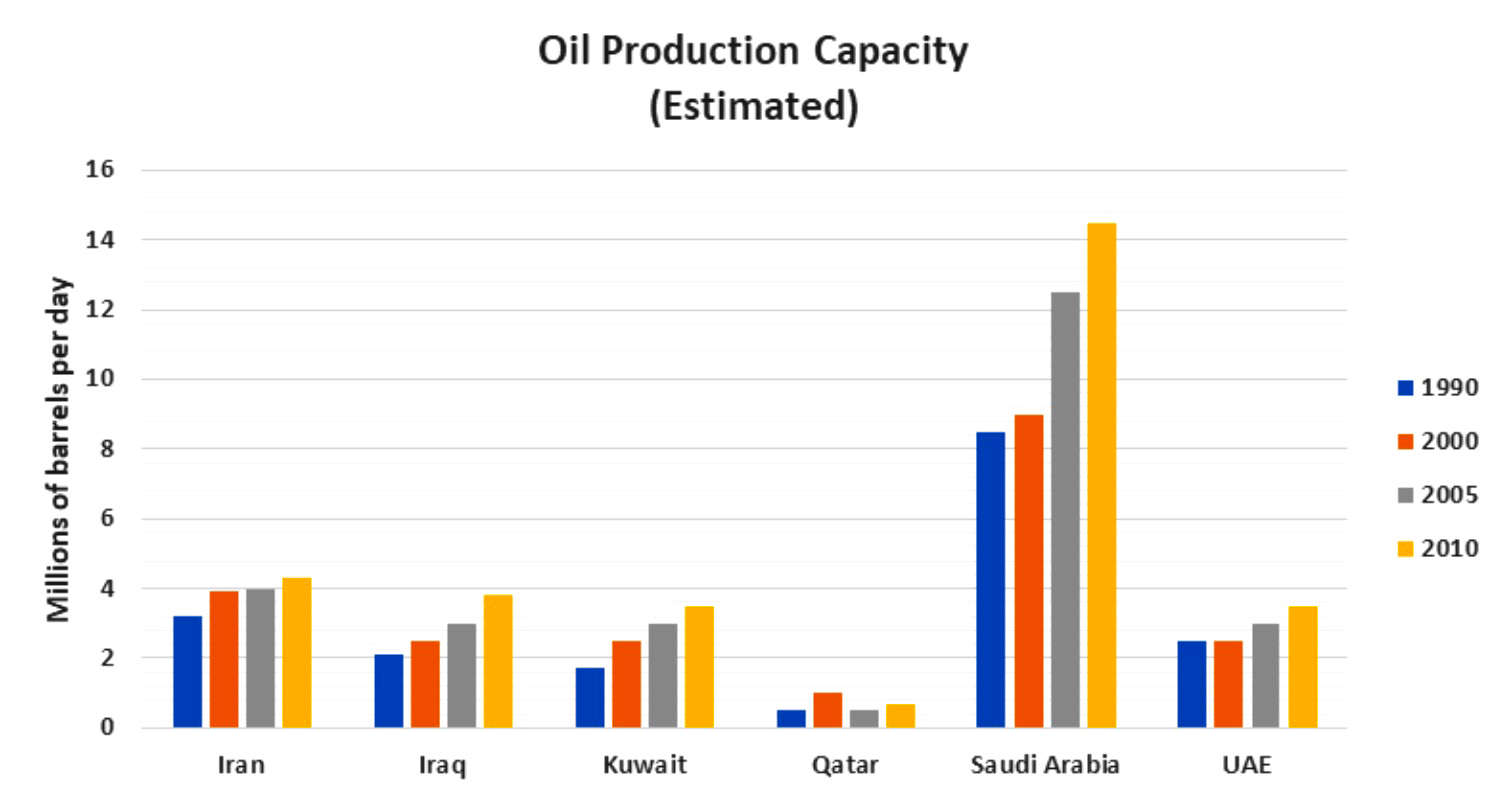The graph shows estimated oil production capacity for several Gulf countries between 1990 and 2010.
Write at least 150 words.

It is a natural process for animal species to become extinct (e.g. Dinosaur, dodos…) There is no reason why people should try to prevent this from happening. Do you agree or disagree?
Give reasons for your answer and include any relevant examples from your own knowledge or experience.
Write at least 250 words.
WRITING TASK 1
The bar chart illustrates oil generation in six different nations from 1990 and 2010.
It is clear that the amount of oil produced in all countries increased except for Qatar, and that Saudi Arabia saw the biggest change in its capacity. Additionally, while Saudi Arabia was the largest oil manufacturing country over the period shown.
In 1990, Saudi Arabia was a leading oil producer as the amount registered over 8 million barrels, while Iran produced about 3 million barrels. In contrast, there were just under 2 million barrels generated in Kuwait, compared to only nearly 1 million barrels in Qatar. Meanwhile, the figures for Iraq and UAE were relatively similar, at around 2 million barrels each. In 2000, the quantity of oil created in UAE remained unchanged, but the other countries experienced slight increases in their figures.
In 2010, marginally more oil was produced in Iran, Iraq, and UAE as illustrated by rises to around 4 million barrels each, whereas the figure for Kuwatt reached well under that amount. In contrast, there was a dramatically growth in the figure for Saudi Arabia to over 14 million barrels, while Qatar’s figure still stayed extremely low at under 1 million barrels.
(199 words)
WRITING TASK 2
Some people believe that there are no compelling reasons for us to protect animal species from extinction as it occurs naturally. I personally disagree with this conviction and will support my argument in the essay below.
It is true that millions of years ago, many ancient species of animals, such as dinosaurs, were wiped out due to a gradual shift in climate and changing sea levels, according to some hypotheses. However, these environmental factors are not the primary contributor to the disappearance of certain species nowadays. Industrial activities have been devastating the natural habitats of wildlife and disturbing the food chain, causing the mass extinction of countless species. The increased demand for goods made from animals’ products, such as skins and horns, also leads to the rampant poaching of wild, endangered animals, rhinos for instance. In this regard, humans are held accountable and should do what is needed to rectify the situation.
Other justifications for saving wild animals involve the significant roles that they play in not only the balance of the ecosystem but also our lives. Everything in nature is connected, and if one species becomes extinct, many other animals and even plants will suffer as the food chain is disrupted. Wild animals also have great aesthetic and socio-cultural values. They contribute to our rich bio-diversity that makes this planet a beautiful place. In numerous places around the world, many types of animals play an important role in different cultures. For example, in some religions, cows are revered and worshiped as gods.
The disappearance of many animal species does not always occur as a natural process but as a consequence of our doings. It is our obligation to help preserve wild animals because their extinction will have a severe influence on many important aspects of our lives.
(298 words)
